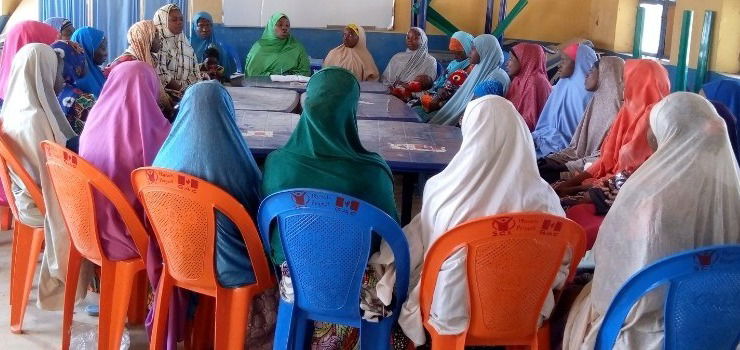ADOLESCENT SEXUAL REPRODUCTIVE HEALTH AND RIGHT (ASRHR)

On ADOLESCENT SEXUAL REPRODUCTIVE HEALTH AND RIGHT (ASRHR)
SMACI in partnership with Save the Children International Successfully Implemented a three years project Funded by Global affairs Canada REACH project, Reaching and empowering Adolescent to make inform choice about their health the project targeted 22,400 adolescent 10-19years of age both male and female (married and unmarried) in the rural and hard to reach communities in of Zamfara state and achieved the following result:
REACH project use socio-ecological model to achieved the following set of goals and objective of the project in three year project April 2018 to August, 2021
Improved sexual and reproductive health of adolescent girls and boys (aged 10-19) in Gombe, Katsina and Zamfara states in Nigeria
- With REACH Project we achieved the following result:
Successfully completed and Delivered 22,863 targeted beneficiaries on choices and ASRH and life skills curriculum.
Increase confidence of adolescent girls in delaying marriage till the age of 18 form 69% to 85%.
Reduced early child marriage before the age of 15 from 41% to 54%.
Increased the knowledge of adolescent girls for the importance of pregnancy safe spacing from 51% to 82%.
Increase willingness of couple on joint decision making about SRH from 35% to 64%.
Enrolled and retained 703 adolescents into school, 467 Girls and 236 boys.
REACH project use socio-ecological model to achieved the following set of goals and objective of the project in three year project April 2018 to August, 2021
Improved sexual and reproductive health of adolescent girls and boys (aged 10-19) in Gombe, Katsina and Zamfara states in Nigeria
Improved access to high quality, gender-responsive and adolescent-friendly SRH services by unmarried and married adolescent girls and boys
Improved decision making of married and unmarried adolescent girls to make inform decisions about their own SRH rights
Improved integration of civil society contribution and evidence based best practices by local and international stakeholders in ASRHR policy design and implementation
The Key activities of REACH project included recruitment and training of facilitators, facilities health gender responsive infrastructure need assessment, consultation with on sporting equipment, social norms exploitation survey, and weekly safe space sessions for Very Young and Older Adolescents for Married and Unmarried (10-19 years), community mobilization events, Quarterly Review Meetings, Advocacy visits, trainings, VOICES viewing sessions, PROMISES poster placing and unveiling, celebration of international days, coaching and mentoring of health workers, outreaches and outreach supervisions, feedback meeting with facilitators and adolescents, supportive supervisions, distribution of safe space materials and Technical Working Groups (TWG) meetings, Orientation of Facilitators on COVID-19 Preventive Measures and creation of awareness on COVID-19 to Adolescents and Community members, election, inauguration and training of children parliament, training of Change Agent, training of Religious and traditional leaders, Dissemination of REACH Mid Term review, training of CBOs on SGBV, REACH Close out event at LGAs, State and national level.
However, the project implementation comes with many challenges due to COVID-19 pandemic. This lead to reduction of adolescents in safe space group from 25 to 20, similarly, safe space session were suspended in some communities such as Gwaram, Ruwan Gizo, etc due to insecurity. The above mention activities were conducted for the progress of the project throughout the implementation period.
Despite the security challenges in some of the project communities and COVID-19 pandemic in year three of the project, the project has recorded a tremendous success with regards to number of adolescents enrolled and graduated from CHOICES and ASRH safe space. Cumulatively, from the project inception May, 2019 to August, 2021. Zamfara state established a total of 2,092 groups for both Choices and ASRH safe spaces M: 936 F: 1156). However, Zamfara state has so far graduated 45,120 adolescents (M: 20,470 F: 24,650)
Adolescents' participation in the safe spaces significantly improved their understanding of gender equality, equitable relationship, negotiation skills, sexual reproductive health, saving goals etc. The boys and girls who are engaged with the project now speak out against discriminations and confidently express their future hopes and aspirations to their parents as well as built their capacity on complaint and feedback mechanism (CRM).
Engagement of traditional and religious leaders to support and ensure effective community mobilization activities in various communities in the LGAs lead to a successful project implementation and sustainability. Stakeholder assured Save the Children international and CSO’s implementation partners of their commitment in project continuity after the closure.